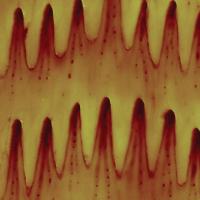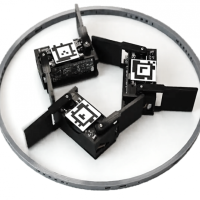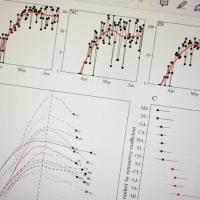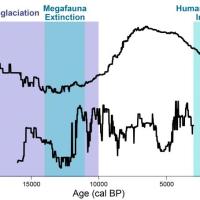News

This semester we will be presenting the second annual QBioS Student Seminar series, highlighting the research of one of our 4th year QBioS students each week and providing an opportunity for feedback and discussion. Topics will include…

The mesmerizing flow of a sidewinder moving obliquely across desert sands has captivated biologists for centuries and has been variously studied over the years, but questions remained about how the snakes produce their unique motion. Sidewinders…

The annual symposium hosted by the Georgia Tech Petit Institute for Bioengineering and Bioscience provided a forum to celebrate the legacy of the NSF/NASA Center for Chemical Evolution, which has been headquartered at Georgia Tech for the past 10…

Colleagues, students, alumni, and friends honor the remarkable life and work of Bridgette A. Barry, a renowned professor of biochemistry and biophysics in the School of Chemistry and Biochemistry, who also a longtime member of the Parker H. Petit…

A new study from School of Psychology researchers shows that color and scenes have a lot to do with how we encode memories, and how we recall them. The study could pave the way for earlier diagnosis of Alzheimer's.

In a recent paper published in PNAS, researchers examine fossil records spanning almost 12,000 years to determine the effects of human activity on where animals live and were surprised by what they found.

Researchers have proposed a new principle by which active matter systems can spontaneously order, without need for higher level instructions or even programmed interaction among the agents. And they have demonstrated this principle in a variety…

School of Earth and Atmospheric Sciences Associate Professor Chris Reinhard is ending 2020 with two research successes: A grant from NASA that allows him and Georgia Tech to join the agency's new astrobiology initiative, and he's the co-…

In the midst of the coronavirus pandemic, two human factors are battling it out: awareness of the virus’s severe consequences and fatigue from nine months of pandemic precautions. The results of that battle can be seen in the oddly shaped case,…

Two Georgia Tech scientists are raising new questions about the development of specialized cells in early multicellular organisms.

School of Physics professor Flavio Fenton is named to the 25th annual Governor's Teaching Fellows Program, set up to help higher education faculty develop teaching skills. Fenton will work on a classroom-related research project through the…

Reduced resilience of plant biomes in North America could be setting the stage for the kind of mass extinctions not seen since the retreat of glaciers and arrival of humans about 13,000 years ago, cautions a new study published August 20 in the…

The Department of Energy's process for predicting how climate change will affect carbon in the planet's ecosystem could get a makeover, thanks to a new grant for two School of Earth and Atmospheric Sciences researchers.

A new at-home polysomnography kit, built by Audrey Duarte and W. Hong Yeo, proposes a path to getting data and a better night’s sleep — thanks to a new, unobtrusive nanotech device.

The researchers found that their cocktail of protein-embedded bacteria changed the structure of clathrate crystal lattices to “polycrystalline and plate-like, instead of forming single, octahedral crystals,” as the study’s abstract notes. …

Video recap: Watch Joshua Weitz and Greg Gibson provide updates on Covid-19 projections and coronavirus surveillance testing, with a focus on the return to campus.

Held this summer in a virtual format, the fourth annual Quantitative Biosciences “Hands-On Modeling Workshop” focused on the basics of epidemics modeling. Joshua Weitz and Pablo Bravo share thoughts on how they ran the virtual workshop — along…

New research from Center for Chemical Evolution experimentally evaluates alternative model to ‘RNA World’ hypothesis, emphasizing collaboration and co-evolution

The new county-level calculator builds on the team’s interactive state-level tool, which estimates the daily risk that one or more individuals infected with Covid-19 are present in U.S. events of various sizes.

Astrobiologists are using their expertise to help produce necessary components for Covid-19 test kits in the state of Georgia.